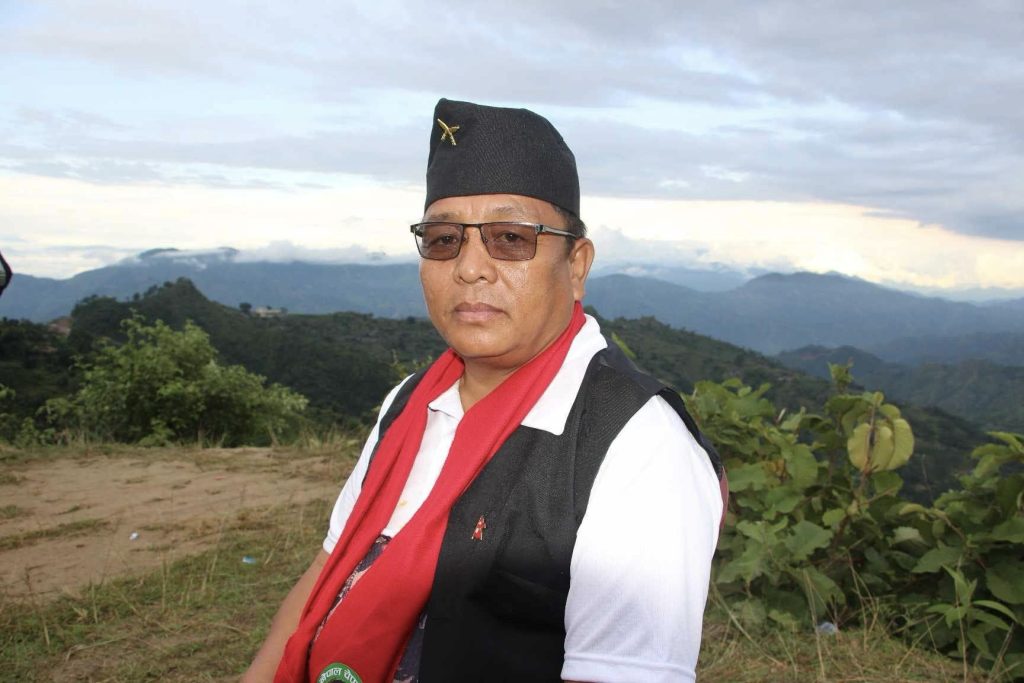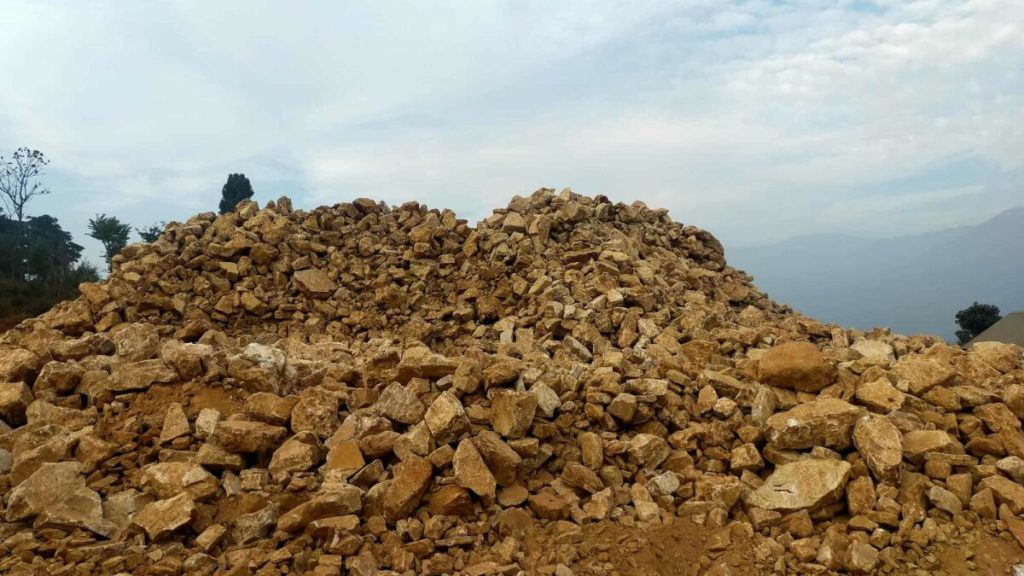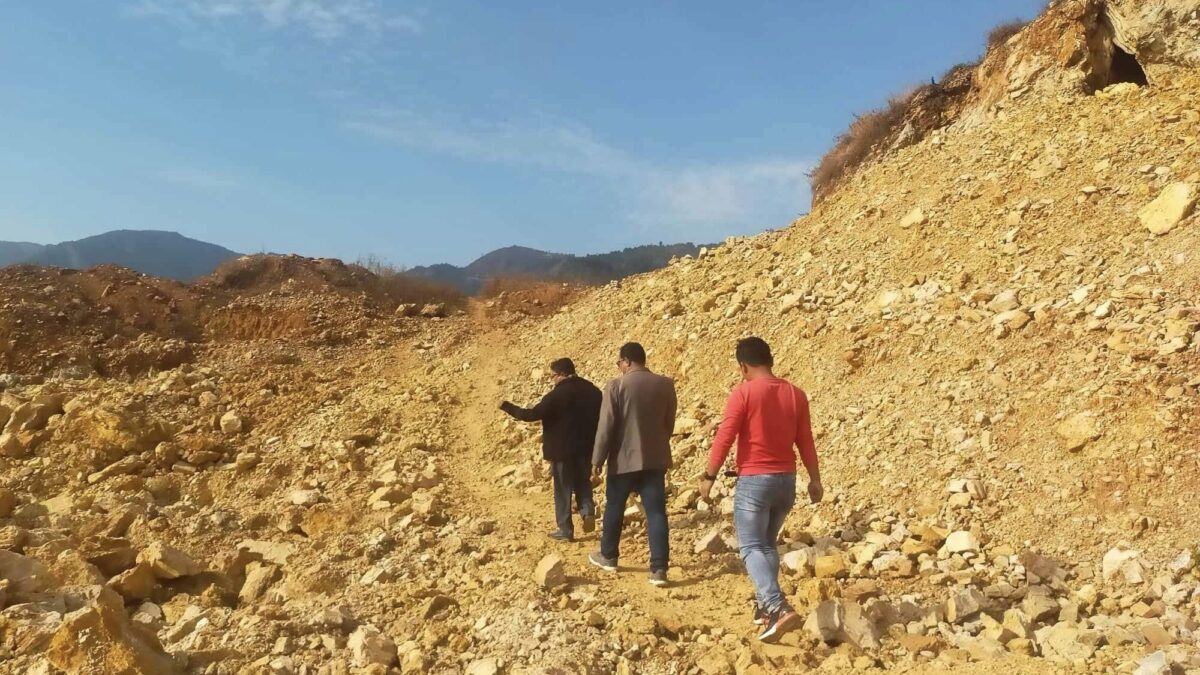Written by Biswash Chepang
As the world seeks to reduce carbon usage, there is a global surge in demand for energy transition minerals, and Nepal is witnessing similar trends.
In Nepal, in areas such as Chitwan, Dhading, and Makawanpur districts — where Indigenous communities, including Tamang, Chepang, and other mixed ethnic groups, reside — minerals like limestones and sands are common. The ongoing extraction activities of crusher and mining industries pose a significant problem in Indigenous Chepang settlements in Dhading, Makawanpur, and Chitwan Districts of Nepal.
Impact on the Chepang community
The escalating mining for these resources poses a direct threat to Indigenous rights and territories. There is a high probability that the continued unsustainable extraction of minerals will eventually displace the Chepang people. The consequences and aftermath of natural calamities could push the vulnerable Chepang community further towards the margins. Quarrying activities have inevitably caused environmental destruction, including excavation, soil and land degradation, loss of biodiversity, and water pollution.

Global Voices recently conducted a face-to-face interview with Gobindaram Chepang in January 2024, the Chairperson of the Nepal Chepang Association, to gather more information on the implications for the Indigenous Chepang people due to limestone extraction. According to Gobindaram Chepang, there are three cases of limestone extraction directly impacting the Chepang community. First, 17 households in Kollar, Supar, Viurang of Siddhi, Kalika Municipality in Chitwan are in the process of displacement due to the extraction of iron and copper by mining companies.
Second, he mentioned that 40 households of the Indigenous Chepang and Tamang community living in Ginggung, Raksirang Rural Municipality, ward number 04, have been displaced from their territories as the Riddhi Siddhi Cement Industry extracts limestone. He quoted the community representatives who shared that limestone extraction in villages has led to soil erosion, landslides, degradation of agricultural lands, and water pollution. According to the Chairperson, the plight of the community is that Riddhi Siddhi Cement Industry offered a reasonable compensation amount of Nepali Rupees (NPR) 1,50,000 (USD 1,128) per Kattha (383.63 sqm), but the intermediary contractors took advantage of it by selling at NPR 20,000 (USD 1,505) per Kattha.

As per the Chairperson, the third case is from Talti of Dhading Benighat Rorang, ward number 2, which is in the process of displacing 60 households due to mineral extraction by Trishakti Mineral Water Pvt. Ltd. The Chairperson reported:
Only half of the households with land ownership certificates received compensation. The remaining half did not receive anything, as the Chepangs were practicing the ‘Khoriya’ system, a traditional form of farming on unregistered lands. The Divisional Forest Office of Dhading halted these forms of farming in steep lands used by the Chepangs. The compensation amount was reasonable for those with land certificates, but those without land ownership certificates had to suffer.

Voices remain unheard
There have been a handful of news reports online and on YouTube about the issues faced by the Chepangs due to limestone extraction. Recent news published in Nepali online reports highlighted a company using a fake signature from a Chepang family to obtain a permit for limestone extraction in Dhading district. This underscores that the voices of the Chepangs remain unheard.
One major reason behind oppressing the voiceless is that many politicians are themselves involved in mineral extraction. More than 200 representatives elected in Nepal’s 2022 municipal elections had “a direct or indirect stake in local businesses, particularly construction-related contract businesses,” which are dependent on mining and crushers. Secondly, these problems have often been amplified after federalism, where acts and policies systematically marginalize vulnerable populations. For example, Nepal’s Local Government Operation Act 2017 granted municipalities the authority to issue contracts for the extraction and collection of river materials. Before 2015, the power to extract sand, gravel, and slate, and its conservation was decided at the central government level.
Calls for more protection
The seventh central national assembly on January 14, 2024, organized by the Nepal Chepang Association, called on various community-based organizations (CBOs), non-governmental organizations (NGOs), and international non-governmental organizations (INGOs) working in Chepang-inhabited areas for effective and close coordination. All the groups require approval from the Nepal Chepang Association to operate in that sector. This one-door policy aims to ensure meaningful and participatory engagement in upcoming project activities and to scrutinize any institutions working in Chepang settlements.
The seventh central national assembly also addressed the issue of the implementation of the declaration of Chepang Protected areas in Chitwan, Makawanpur, and Dhading by the Bagmati provincial government.
If these unsustainable extractions are not controlled or monitored by the government, it will remain a threat to people living nearby. Large-scale mining will result in irreparable damage to the environment and local agriculture, threatening lands, water sources, livelihoods, and ways of life, ultimately displacing the Chepang community from their ancestral land. A delayed response to these problems will lead to attributed land degradation. Haphazard excavation of limestone poses a landslide risk and the drying up of natural springs.
It is not only about monetary compensation and tangible impacts caused by the extraction of minerals, such as air pollution and the shrinking of water sources. It is about Chepangs’ indigeneity, cultures, traditions, and their attachments to the lands. Attachment to their ancestral lands and forests will only protect their culture and traditional livelihoods. Displacement will consequently lead to the erasure of their spiritual and cultural values connected to the land and resources, food systems, and livelihoods as they are closely associated with forests.
Recognizing and protecting the Indigenous knowledge and practices of Indigenous communities is necessary as it contributes to the sustainable management of natural resources, ecosystems, and biodiversity, sustaining their traditional livelihoods, and maintaining traditional knowledge, skills, and cultural values. Although Nepal has adopted the International Labor Organization (ILO) Convention 169 and the UN Declaration on the Rights of Indigenous Peoples (UNDRIP), it continues to fail to implement them and disregards the rights of Indigenous Peoples and their livelihoods.
The UN Guiding Principles call upon companies to conduct human rights due diligence to identify, mitigate, and remediate adverse human rights impacts in business operations and relationships.







